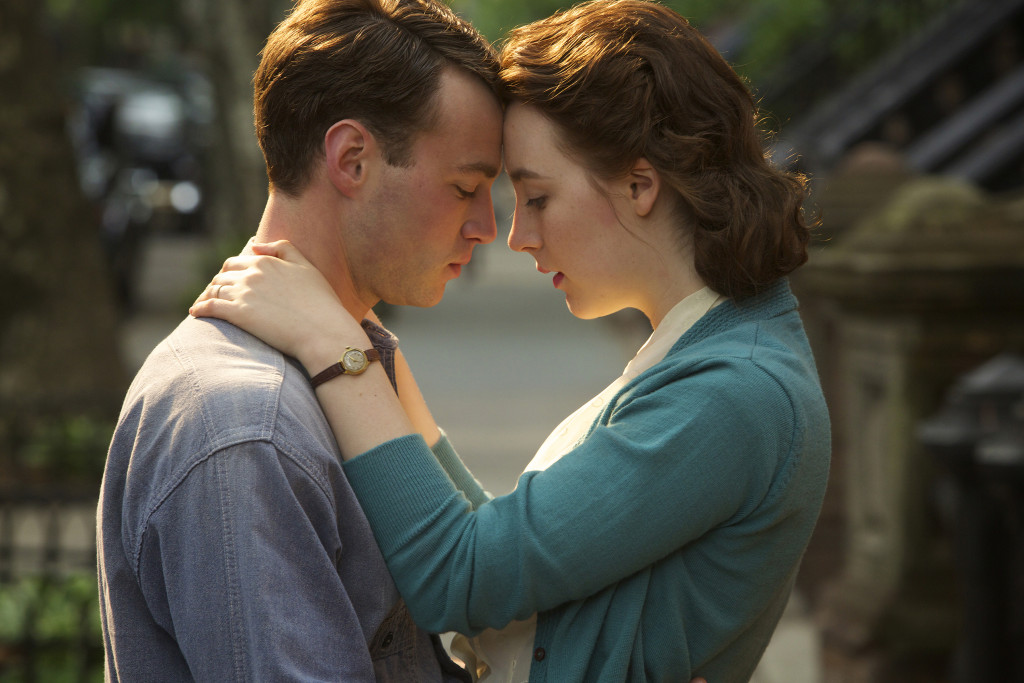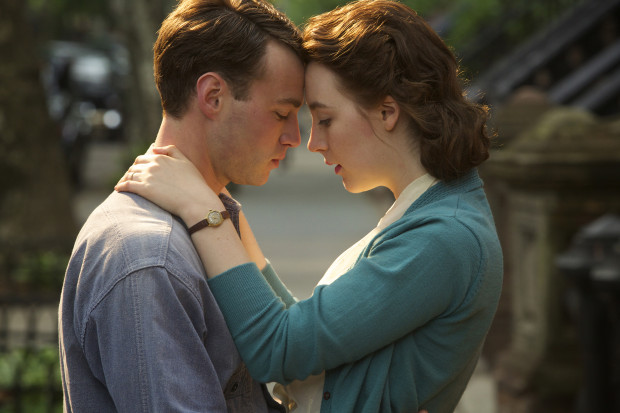
Judy Garland shut her eyes and clicked her heels and repeated her spell but she was only half right. There’s no place like home, but there are also many places like home. Given enough time and familiarity, potentially everywhere can feel like the place you’re supposed to be. The fluidity of home and its irresistible pull over us is the focus of emigration drama Brooklyn, directed by John Crowley and adapted from Colm Toibin’s novel by Nick Hornby, now becoming a solid interpreter of others’ works. At its heart is Eilis Lacey (Saoirse Ronan), who relocates across choppy waters from her barren 1950s Wexford town to New York, leaving her sister and mother (the excellent Jane Brennan) behind to start a new life. Hazily nostalgic, but packing moving currents of feeling, the film trades in pleasing contradictions, saved from fatal sweetness by a forceful and lead performance from Ronan, who is becoming this island’s most talented screen-acting export in a long while.
Brooklyn is a gentle, Sunday-night version of the bootstraps immigrant narrative that looms so large in the American imagination. Eilis gets her shot at the American Dream, its melting pot fashions and opportunities, but it’s played closer to how the mass of new arrivals may have experienced it, finding big emotion in the quotidian experience of making yourself anew. Eilis falls for second-generation Italian Tony (a breezy Emory Cohen), whose meatball-gobbling family manages to be both endearing and deeply stereotypical, and channels a talent for numbers into book-keeping training. The film is interested in how we try to gain firmer ground every day, building our real estate a bit at a time – a partner, a job, a chance for something better – until one day we look around and realize we’re standing in our lives.
Just as Eilis is caught between the two sides of the Atlantic, the film does its best to straddle prose and visuals, sometimes with awkwardness. So much of the action is interior – the small shifts in Eilis’ perspective, whose intense homesickness shifts into a complex acceptance of her dual identity – and Nick Hornby’s screenplay isn’t always delicate enough to handle these subtleties, falling back on the voiceover narration of Eilis’ letters home to explain how she’s feeling, and where she’s at in her journey, in a way that feels like straight-up transcription. And despite its title, there’s a very limited sense of geography and location.
The film is being sold as a love triangle, Eilis caught between competing trans-Atlantic romantic interests, but this overplays the rivalry between the eventual suitors, and the narrative importance of her choice between them. Two thirds of the way in, there’s a family tragedy, and Eilis has to return for an ever-ballooning period of time, newly flush with experience and easygoing New World glamour. Back home, she strikes up a connection with thoroughly solid but unchallenging local lad Jim Farrell (Domhnall Gleeson). Jim is never really a contender, but his role is more symbolic; a marker of a potential alternative, one that seems to unpack itself without very much effort on Eilis’ part. Her restrained agency is a more general character problem, seemingly untroubled by substantial challenges or decisions, shepherded along by a series of helpers – Jim Broadbent’s priest, experienced travellers and Julie Walters’ game boarding house governess. It’s simply inconceivable that things were this easy for a female Irish immigrant at this historical point.
Brooklyn has a soothing, sanitised picture-postcard niceness which teeters just above period gloop. But Ronan is the essential ingredient, her alert, intelligent performance working hard to unspool swirling feeling. It’s hard to think of a recent lead performance which has made such a difference between joy and disaster. When the film is in danger of lounging in thematic abstraction, Ronan grabs the small moments and pulls it into clearer focus. After serving Christmas dinner to Irish labourers with nowhere else to go, one of them rises, removes his cap and performs a beautiful, sorrowful Gaelic ballad, and Eilis’ face bristles with repressed feeling, her heart full of things near and far away, of distances irreconcilable. Conor Smyth






